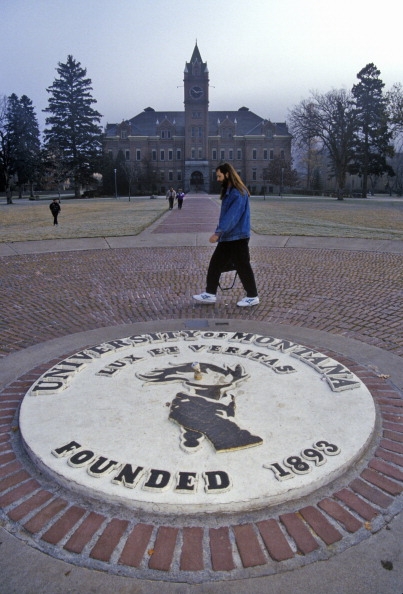You have /5 articles left.
Sign up for a free account or log in.

University of Montana
Getty Images
When I read the rather ominous declaration by a columnist in The Wall Street Journal that I would be “watched,” I had to smile. The author had clearly not done her homework.
For the past three years, I have sat on Turning Point’s Professor Watchlist -- I am the only such professor from the entire state of Montana who bears that distinction. The white nationalist affiliates who put me on that list did so because I regularly discuss the history of systemic racism and white privilege in my classes and public lectures. They labeled me a “radical“ -- a designation that led to death threats from the far right.
So I am used to being “watched.” The events of the last three weeks have brought about another kind of scrutiny, this time from the other end of the political spectrum -- not only for being a white man who directs the African American studies program at the University of Montana, but also for chairing the committee that awarded four white women prizes in a Martin Luther King Jr. Day writing contest. Although I have not received death threats this time around, the level of vitriol present in the calls and emails I have received has been -- to say the least -- sobering.
Sitting in this space with watchers from all angles, I’ve made the decision to invite them in for closer examination.
I welcome you into my classes, watchers. If you happen to be there on the first day of a semester, you’ll hear me raise the issue of my racial identity as I do in every class. You will hear me note the tension inherent in my position, the colleagues of color who have supported and called me into this work, and an invitation to my students to explore with me the limits and possibilities of my role.
I invite you to meet the students of color who have come out of the African American studies program at the University of Montana and who have gone on to work full-time dismantling racism, who appeared on the Kennedy Center stage to perform a dance about African American history and struggle based on the content from my classes, who will be co-teaching with me a public class on the history of hip-hop in Missoula (because there is such a history).
I would also love to introduce you to some of the white students at the university who have produced pamphlets challenging white liberals to listen carefully to the perspectives of people of color, who are preparing for legal careers in which they plan on challenging systemic racism in all its forms and who are working as journalists making sure that the rich history of African Americans in Montana is not forgotten.
I likewise invite you to pay attention to our collective, intentional efforts to challenge racism in the public school system, to lift up the voices and perspectives of youth and young adults of color here in Missoula, and to stay true to the legacy of the country’s third oldest African American studies program right here at the University Montana -- one that we have honored and celebrated by hosting scholars such as Cornel West, Darlene Clark Hine, Josef Sorett and many others.
So yes, please watch us. I’m sure you will notice mistakes as we continue struggling to find better, more effective ways to both challenge white supremacy and support all our students -- but particularly our students of color so that they can thrive in this very white place.
We are already aware of Montana’s racial demographics, of the particular choices we make to both push back against the rising tide of white nationalism in our state while also finding ways to dismantle racism in a well-meaning but all too often racially naïve environment.
But as you watch, do know this. I for one will not allow the complexities of my particular position or the controversy surrounding our contest to cause me to back away from continuing our work. And, in so doing, I reject any effort -- whether in The Wall Street Journal or elsewhere -- to take up my cause as a case study in the supposed failure of diversity in the academy.
Because, you see, the current controversy, as challenging and emotionally fraught as it has been, is part of the work. Sure, there will be contradictions. Yes, there will be disagreement. It will get intense. But the kind of debate that this MLK contest has engendered does not somehow render efforts at diversity, equity or inclusion irrelevant or bankrupt. It just makes clear that the struggle to overcome institutional racism requires the best of all our common efforts.
I do not apologize for believing in King’s vision of a beloved community even as I recognize how whitewashed versions of that vision have too often stifled conversations about power, privilege and oppression. I will do my best to hold both before us, that vision of unity and the reality of white supremacy.
I invite our watchers to do the same.




